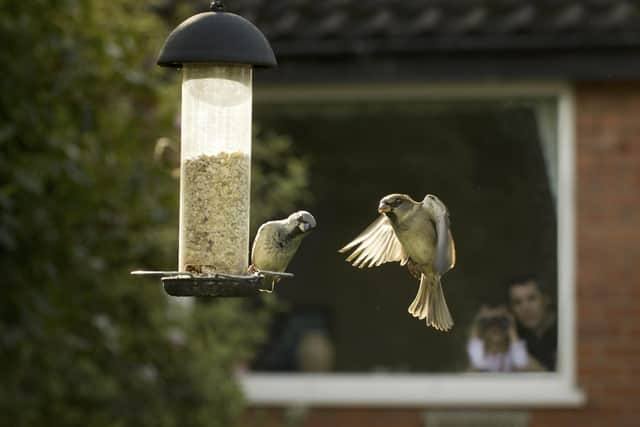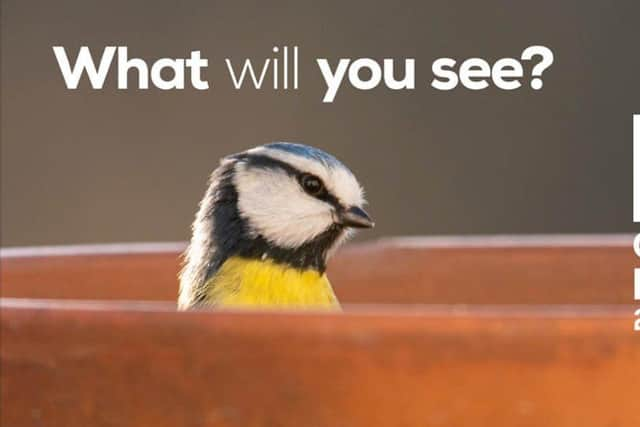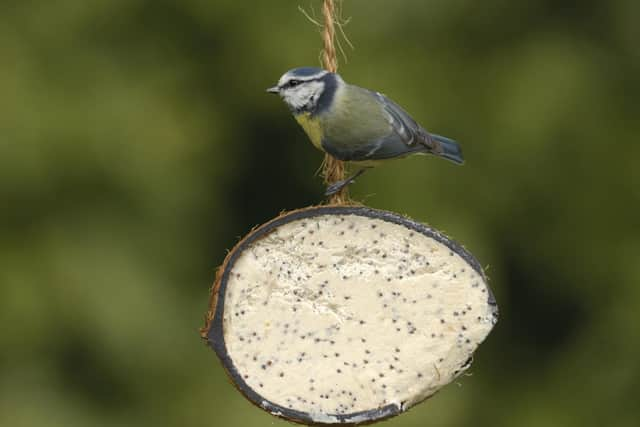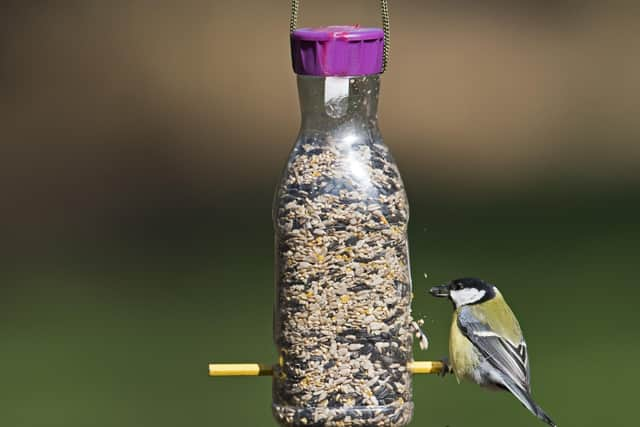Sussex people urged to take part in the Big Garden Birdwatch
and live on Freeview channel 276
The UK’s biggest citizen science project has been recording the winners and losers in the garden bird world for over four decades with the help of half a million people, and now the RSPB is counting on Sussex residents to join in too.
Set to enter it’s 42nd year this month, the largest wildlife survey in the world, the Big Garden Birdwatch, runs from January 29-31 and combines over 40 years of records to monitor vital bird trends.
Advertisement
Hide AdAdvertisement
Hide AdThe RSPB want people across Sussex to get involved, spending just an hour of their time recording the birds and other wildlife found in their gardens, balconies or nearby green spaces, and submitting their results to the wildlife charity.


Becca Smith, from the RSPB said: “This past year, we’ve seen how important the natural world is to our mental health and wellbeing.
“There has been a surge in interest in the nature on our doorsteps and many people have come to rely on garden birds to bring joy and comfort in these unsettling times.
“That’s why the RSPB is hoping to see more people than ever take part, after over 16,700 Sussex residents took part last year.”
Advertisement
Hide AdAdvertisement
Hide AdBoth across the country and here in Sussex, house sparrows topped the rankings in the RSPB’s Big Garden Birdwatch results last year, despite wider national decline.


Meanwhile, starlings and blue tits joined house sparrows to form the top three most sighted birds in Sussex.
A common garden bird thanks to the provision of winter food and nest boxes, blue tits are on the rise across the country, with an eight per cent increase in the population since 1979.
Other birds featuring in the area’s ‘top ten’ were chaffinches, dunnocks and long tailed tits.
Advertisement
Hide AdAdvertisement
Hide AdSeeing a positive change across Sussex gardens, long tailed tits were found in 14 per cent more gardens in 2020 compared to previous years.


These charming birds, with distinctive pink grey and white feathers and long tail, are usually found in large flocks of up to 20 birds and often make use of garden feeders throughout the winter – so be sure to look out for them this year.
Allowing the RSPB to monitor similar bird trends across the country, the data collected during the Big Garden Birdwatch will create a ‘snapshot’ of bird numbers across the UK and how they have faired since the project began over 40 years ago.
The Big Garden Birdwatch is a great opportunity to connect with nature and help with the RSPB’s work. The great thing is that you never know what birds you might see. Will you enjoy a flock of fluffed-up long-tailed tits, will you be charmed by a group of goldfinches or will a cheeky robin steal the show?
Advertisement
Hide AdAdvertisement
Hide AdIf you don’t have a garden you could always take some exercise in a local park and report on what birds you spot.


No matter how much you know about garden birds already, the RSPB will provide a free Big Garden Birdwatch guide, which includes a bird identification chart, top tips for your birdwatch, RSPB shop voucher, plus advice on how to help you attract wildlife to your garden, for those who text BIRD to 70030 or register at www.rspb.org.uk/ birdwatch.